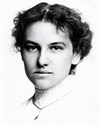Library Reopening:
The Oregon Historical Society has announced that beginning April 2, the research library will be open 12 hours a week, and that all of the collections will be accessible during those hours (Thursday, 1-5; Friday, 1-5; and Saturday 1-5).
While the Oregon Historical Society previously employed 14 professional archivists and reference librarians, it now only employs 3.5 staffers (one of which works full time in the Gresham warehouse, and another position will expire in May — leaving 1.5 professional staff), making it apparent that volunteers will be doing work previously done by professional staff. This raises legitimate questions about the safety of the collections, which are irreplaceable.
Future of the Collections:
Dr. George Vogt, the executive director has indicated that the Society may give the library and its collections to another entity, such as the Oregon University Systems or the Multnomah County Library.
We were very pleased to hear Dr. Vogt say (on OPB’s “Think Out Loud”) that OHS would transfer the collections intact.
From meeting minutes of the Board of Directors of the Oregon Historical Society, it is apparent that Dr. Vogt has decided to consolidate financial resources in the Society’s museum. Here are comments of Dr. Vogt and board members regarding the financial situation and their decision to lay off most of the library’s professional staff:
Jan. 9, 2009, Notes from OHS Board of Directors meeting
“Dr. Vogt said it is difficult to plan any contingency without a bottom line dollar amount. Some preliminary ideas:
- His thought is to keep the museum and focus on education first, then see what else we can sustain.
- Another thought was looking at real estate prospects on the block.
- Another is to consider a partnership with another entity to fund the library and its personnel, thereby keeping some of the staff expertise in place.”
“Different scenarios and options were discussed by the committee.
- Keep the museum and education, close the library.
- Keep the library and close the museum.
- Give the library back to the University of Oregon
- The state should fund our collections and preservation.”
Jan. 29, 2009, Notes from OHS Finance Committee Minutes
“Jim Richardson suggested closing the museum for two days and only opening for five days to send a message. Dr. Vogt said our focus was on school children and education he would rather not do that.
Dr. Vogt said if we transferred the library to Portland State or Lewis and Clark or the University of Oregon, we could keep the museum.” …
“Dr. Vogt said he would rather not see the Quarterly and the rentals disappear, and he would like to place them on a pending list (if further reductions were necessary). Jim Richardson suggested revisiting the pending list on July 1. He thought it was an excellent plan for the short-term.”
Feb. 17, 2009, Notes from OHS Board of Trustees Meeting
Discussion of Proposed 2009 Budget Revisions, including the elimination of 12 positions, “mostly in the library, and one position in Development.”
“Jackie Peterson-Loomis said this would be the equivalent of decapitating the library; she urged the board not to rush to judgment. She did not believe it was appropriate for the board to chop off a big chunk of the institution. There needs to be board and public discussion.”
“Carrell Bradley said we have to do what’s best for the public. He felt there was a lot of duplication between the OHS library and the Wilson room of the Multnomah library; many things are the same.”
“Motion: Guy Randles moved to approve the reduction plan and to authorize the Executive Committee to revise the budget as needed based on other events that may occur. Jim Richardson seconded and the motion was carried. Jackie Peterson-Loomis voted nay, and there were several abstentions.”
March 24, 2009, George Vogt on Think Out Loud
Guest George Vogt, Executive Director of the Oregon Historical Society, elaborated on OHS’s preliminary conversations with the “various entitles” mentioned in prior OHS releases:
Vogt: “At the time that we announced the budget reductions and the layoffs [February 27, 2009], I had really an outpouring of offers of assistance from the university community in Portland, from librarians all across the state, and university systems. And we’ve had conference calls and meetings to talk about what might be. Some of the things that have been discussed within those groups, were the concept of making the research library a part of the Oregon University system — it is that important a library that one could consider that.”
TOL Host: “Intact? In one piece?”
Vogt: “Yeah, probably operated where it is now, but part of the university system. And there have been suggestions also that perhaps one or the other of the universities within that system could step forward to help. There have been only the very most preliminary discussions with the university system, and we’re still exploring to see whether there are any interests there that could help us. We’re also looking elsewhere. Multnomah County is a possible sister to the library as well. In fact, the library used to get several hundred thousand dollars a year in support from Multnomah County, so there’s some precedent for that. But at this point — and I’m not trying to be coy about this — there’s rather little to report, other than, discussions are underway, and I’m making tracks to talk to people.” …

